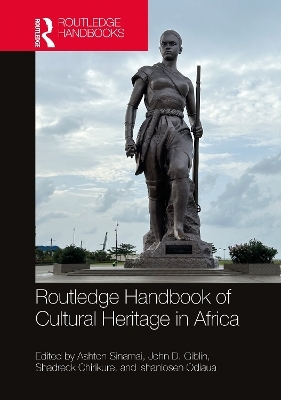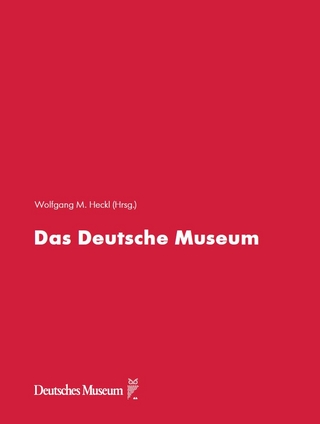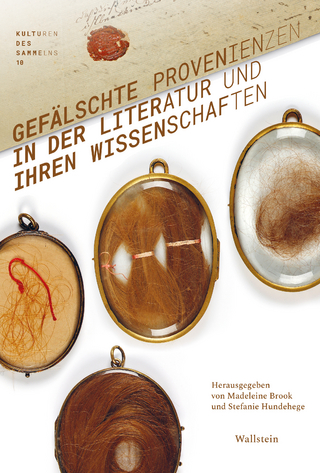
Routledge Handbook of Critical African Heritage Studies
Routledge (Verlag)
978-0-367-43402-1 (ISBN)
This handbook is a foundational reference point for critical heritage research about Africa and its diaspora.
Foregrounding the diversity of knowledge systems needed to examine heritage issues in such a diverse continent, the contributors to this volume:
argue for an understanding heritage that is at once both natural and cultural, tangible and intangible, political and dissonant, going beyond the physical and objective to include subjective narratives, performances, rituals, memories and emotions
examine the pre-coloniality, coloniality, post-coloniality, and decoloniality of current African heritage discourses and their consequences
analyse how heritage legislation derived from colonial law is compatible or otherwise with how heritage is perceived, identified and remembered in African communities
discuss questions of repatriation, restitution and reparations in relation to the return of artefacts from Western countries
illuminate the importance of ‘difficult heritage’ within Africa and its diaspora
consider the role of heritage for development in Africa
Making a crucial contribution to our understanding of African conceptions and practices of heritage, this book is an important read for scholars of African Studies, heritage and museum studies, archaeology, anthropology and history.
Ashton Sinamai is an archaeologist with experience from Zimbabwe, Namibia, United Kingdom and Australia. He has a PhD in Cultural Heritage and Museum Studies from Deakin University and currently works as a Heritage Consultant for Ecology and Heritage Partners. Previously he has worked as an archaeologist at Great Zimbabwe, Chief Curator at the National Museum of Namibia and as lecturer at the Midlands State University, Zimbabwe. John Daniel Giblin is Keeper of Global Arts, Cultures and Design at National Museums Scotland. He was previously Head of Africa Section at the British Museum and holds an honorary position in archaeology at University College London. His current research focuses on museum colonial histories and legacies and participatory practice in the UK and his previous research focused on critical studies of post-conflict heritage and archaeology in eastern and central Africa. Shadreck Chirikure is Edward Hall Professor of Archaeological Science and Director of the Research Laboratory for Archaeology and the History of Art in the University of Oxford. He applies methods from the sciences to understand materials as a step towards learning about the people that produced them and to conserve heritage. Ishanlosen Odiaua is a Senior Social Development Specialist at the World Bank. She holds a doctorate degree in Art history (architectural conservation) and is President of the ICOMOS Advisory Committee.
Foreword: An African Critical Heritage Studies? 1: Introducing African Critical Heritage Studies Part 1: Useable Pasts, Justice and Society 2: Part Introduction: Useable Pasts, Justice and Society 3: Useable Heritage and West Africa: Liberation for the People 4: Post-Conflict Memory and Heritage: South Sudan and Beyond 5: Heritage the Use of the Past in Eastern Africa 6: Heritage, Society, and Justice in Central Africa 7: Heritage and Social Justice in Southern Africa: Rethinking Spaces of Community Involvement in Heritage Management Part 2: Heritages of Slavery 8: Part Introduction: Heritages of Slavery 9: Narrating the Slave Trade and Slavery Heritage in West Africa and its Diaspora 10: Slavery Tourism in Eastern Africa 11: Slavery Legacy in the Congo Basin 12: African Diaspora Heritage in the Americas Part 3: African Objects and the Global Museum-Scape 13: Part Introduction: African Objects and the Global Museum-Scape 14: North Africa's Dispersed Heritage 15: Collecting (East) Africa in the Age of Empire 16: Restitution, Repatriation and Reparation: Current Debate 17: The Ethnicization of Namibian Human Remains from Germany: ‘Cutting across tribal affiliation’ Part 4: Perceptions of an African Cultural Landscape 18: Part Introduction: Perceptions of an African Cultural Landscape 19: The Decolonization of Monumental Landscapes and Heritage Policies in Africa 20: Tradition, Power and Landscape: West African Royal Palaces 21: Maritime Heritage in Eastern and Southern Africa 22: Rock Art and the African Landscape: Explorations of Paintings from Matopo Hills, Zimbabwe and Chongoni Hills, Malaŵi 23: Biocultural Heritage: Definitions, Applications and African Case Studies Part 5: Global Heritage Systems and the Management of Heritage in Africa 24: Part Introduction: Global Heritage Systems and the Management of Heritage in Africa 25: Excluding Communities, Liberation Heritage and Managing Conflict: Tracing ‘Westernised’ Heritage Practices in Southern Africa 26: African Customary Law and the Impact of Non-African Cultural Heritage Legislation in Africa 27: World Heritage for Sustainable Development in Africa 28: The Sustainability Question in Heritage Tourism Development in Africa 29: African Oral Traditions as Heritage and UNESCO’s Intangible List Part 6: Decolonising African Heritage 30: Part Introduction: Decolonising African Heritage 31: Coloniality and Decoloniality of Heritage Institutions in West Africa 32: Decolonising the Dead or Decolonising Death in Southern Africa? Some Hesitations 33: Decolonising the Academy: Heritage, #RhodesMustFall and the University of Cape Town? 34: What British Museums Mean When They Talk About Decolonising Their African Collections, And What They Don’t 35: How to Decolonise a Museum: Lessons from the African Continent
| Erscheinungsdatum | 10.09.2024 |
|---|---|
| Zusatzinfo | 1 Tables, black and white; 101 Halftones, black and white; 101 Illustrations, black and white |
| Verlagsort | London |
| Sprache | englisch |
| Maße | 174 x 246 mm |
| Gewicht | 1174 g |
| Themenwelt | Kunst / Musik / Theater |
| Reisen ► Reiseführer | |
| Geisteswissenschaften ► Geschichte ► Hilfswissenschaften | |
| Geisteswissenschaften ► Geschichte ► Regional- / Ländergeschichte | |
| Sozialwissenschaften ► Soziologie ► Spezielle Soziologien | |
| ISBN-10 | 0-367-43402-4 / 0367434024 |
| ISBN-13 | 978-0-367-43402-1 / 9780367434021 |
| Zustand | Neuware |
| Informationen gemäß Produktsicherheitsverordnung (GPSR) | |
| Haben Sie eine Frage zum Produkt? |
aus dem Bereich


